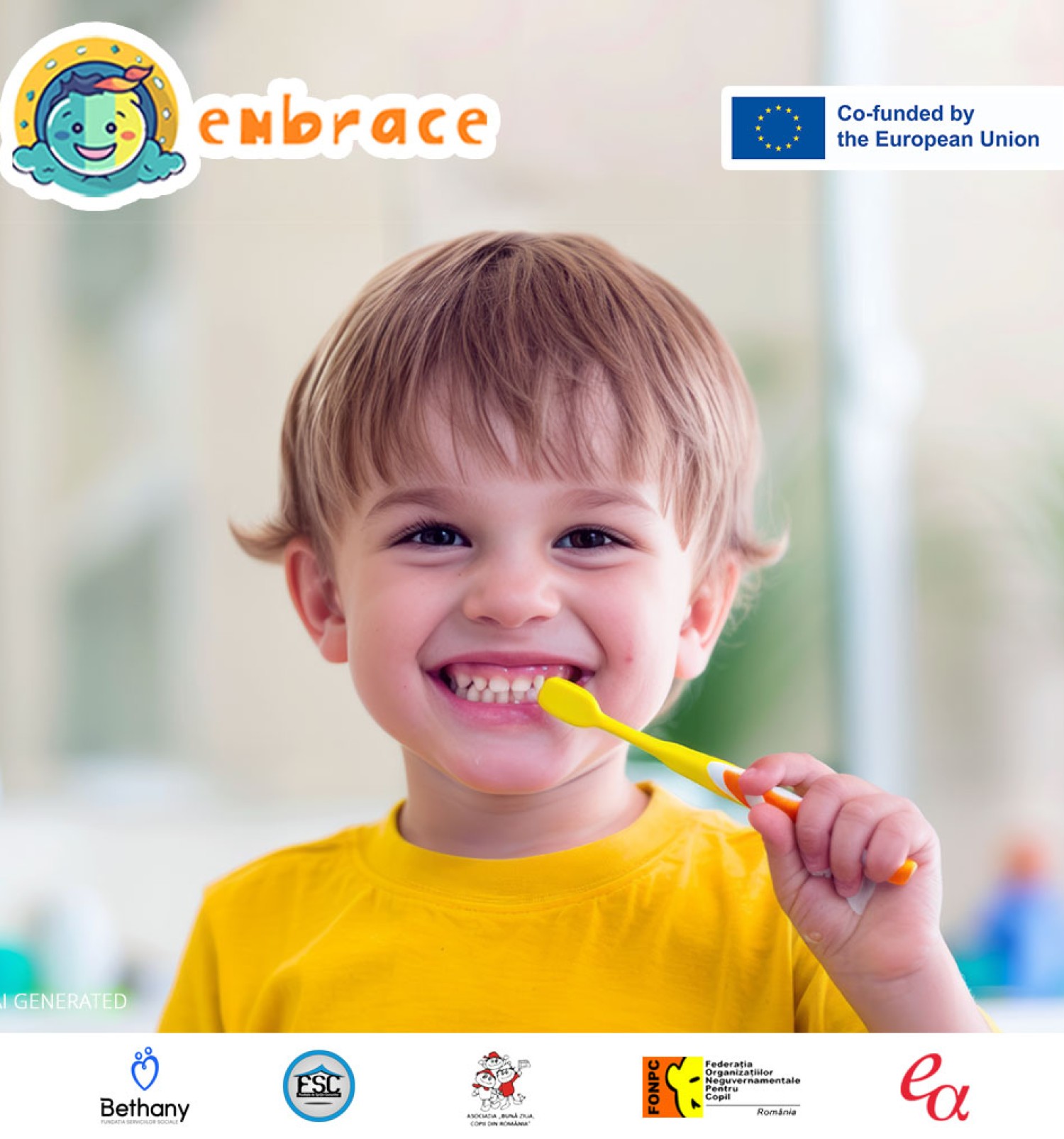When children are taught to care for their bodies through simple daily routines, they not only stay healthier but also build confidence, self-respect, and lifelong habits that support their well-being.
Did you know that in some European countries, fewer than 45% of children brush their teeth more than once a day?
According to data from the WHO’s European Region, a significant portion of children aged 11–15 brush their teeth less than twice a day. Poor oral hygiene in childhood is linked to a higher risk of cavities, gum disease, and reduced self-esteem, often due to visible dental issues or bad breath.
Source: WHO Europe Region
That’s why the EMBRACE Project integrates personal hygiene into Module 1: Physical Health, the Basis of Well-being. With our partners in Northern Romania, we’re helping children understand how healthy routines support both body and mind.
Here’s what children learn:
- Hand Hygiene – Washing before meals and after using the toilet to prevent illness.
- Oral Care – Brushing techniques, and how clean teeth connect to confidence.
- Daily Cleanliness – Bathing, changing clothes, and how these habits foster dignity, self-esteem, and inclusion.
Lessons are hands-on, age-appropriate, and designed to make hygiene feel empowering, not just necessary.
Our partners Fundatia Serviciilor Sociale Bethany (FSSB), Fundatia de Sprijin Comunitar (FSC), Asociatia “Bună Ziua, Copii din România”` (BZRO), Federatia Organizatiilor Neguvernamentale pentru Copil (FONPC) & Evolutionary Archetypes Consulting SL (EA) are developing engaging materials to help children learn about personal hygiene!
Let’s continue promoting hygiene and well-being as core pillars of child development.



